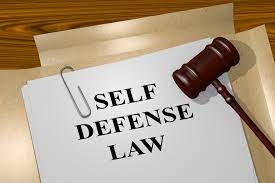When someone is accused of a crime, the first thing that usually comes to mind is the available defense. Although a defense lawyer can help determine the most appropriate defense for the case, it is important to understand the meaning of each defense. There are several criminal defenses for most crimes, and understanding each will help determine your rights and options.
Definition of criminal defense
In short, criminal defense is a strategic argument that attempts to challenge the adequacy and validity of the prosecution’s evidence. The party trying to prove the criminal charges against the defendant is called the prosecution, the people, or the country. Although the prosecution will try to prove that the defendant committed the crime, the defense will try to prove otherwise.
Common types of criminal defense
When accused of a crime, the defendant can use a variety of defense methods. For example, the defendant may argue that collecting evidence violates their constitutional rights or that there are loopholes in the prosecution’s care. The main defensive measures that can be used include:
1. Not guilty: A simple defense of criminal responsibility, presented when the defendant has committed no crime. The defendant does not have to prove anything, but can choose to provide testimony, documents and other evidence to prove his innocence.

2. Alibi: An affirmative defense in which the defendant must prove that he or she was not at the scene of the crime when the crime occurred. This may require testimony from people with them, receipts from restaurants, surveillance video, phone recordings, or tickets to sports events or cinemas.
3. Constitutional violence: The defense questioned the way law enforcement officials collected evidence used in the case. This may include illegal searches, confiscation of property, or failure to obtain a search or entry order.
4. Voluntary and involuntary poisoning: Although involuntary poisoning involves a lack of intentional defense, voluntary poisoning may not be an effective defense.
5. Self-defense: being prosecuted for crimes such as assault, assault, and murder, in which case the defendant will prove his behavior as a way of responding to threats or violent behavior.

6. Other possible defenses: other defenses that can be used in criminal cases, including defense for others, property defense, necessary errors in law or facts, waiver or withdrawal, coercion or coercion, statute of limitations, etc.
Although defenses may be very different, they also try to increase the prosecutor’s burden of proof. They make it difficult for prosecutors to prove the defendant’s guilt without reasonable doubt.
